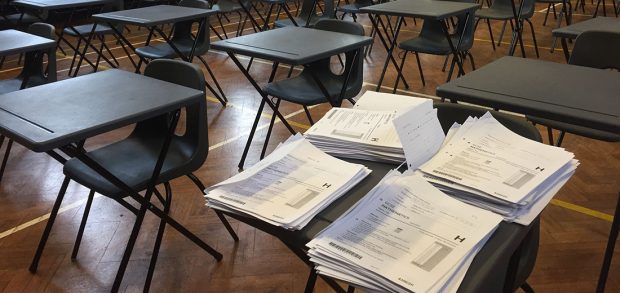Exams
This year, exams and assessments in England have been cancelled to help stop the spread of Coronavirus (COVID-19). Instead, for GCSEs, AS and A levels, and many similar vocational and technical qualifications taken for progression purposes, schools and colleges are …
With the first GCSE exams a little over 10 weeks away, exam boards are putting the final touches to their preparations for the summer. An important part of this is the recruitment of sufficient examiners to ensure that GCSEs, AS …
As the deadline approaches for making GCSE entries, we know that schools and colleges will be thinking carefully about the appropriate tier of entry for their students in those subjects that are tiered – maths and statistics, the science suite …
Students taking GCSEs, AS or A levels this year should be available from the date of their first exam up to and including 24 June 2020. This is in case one of their exams has to be rearranged because of …
For many years there has been a November GCSE series which provides an opportunity for students to resit English language and maths. It’s mainly for students who didn’t get the results they were aiming for previously, and it is only …
From time to time we see suggestions that one exam board’s GCSE is easier than another, most often because one board has a higher percentage of students achieving high grades. I’d like to explain why simply comparing the grade profiles …
This is the first year that almost all GCSE students have taken reformed exams and over 99 per cent will get results that are all 9 to 1 grades. Our latest blog looks at what to expect from an Ofqual perspective when results are published on Thursday.
Next Thursday, AS and A level results are released. If you’re counting down the days, here is an update on some of the issues that have arisen over the summer, and a few things to bear in mind when results …
What happens once GCSE and A level exams have finished? An immense amount of work to mark and grade the papers that learners have completed.
We're using our last blog before summer exams start to share our final hints and tips for students








